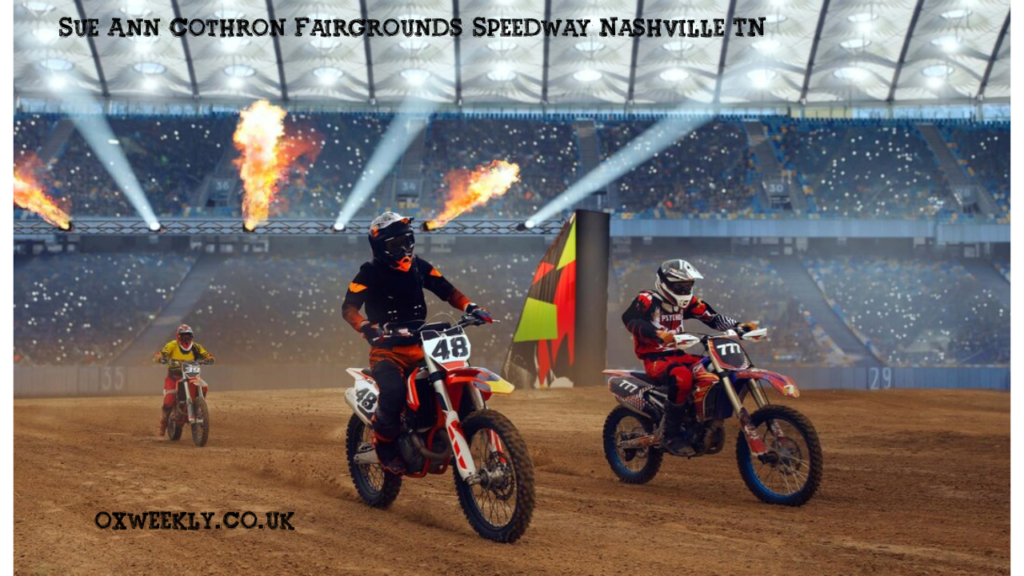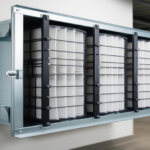The Fairgrounds Speedway in Nashville, Tennessee, is a cornerstone of American motorsports history, boasting a legacy that dates back over a century. As one of the oldest continually operating racetracks in the United States, it has witnessed the evolution of racing, hosted legendary drivers, and remained a cultural icon in Nashville. Central to the speedway’s survival and prominence is the tireless work of advocates like Sue Ann Cothron. Her dedication to preserving the track and ensuring its role in the community has made her a key figure in its enduring story.
This article explores the history of the Fairgrounds Speedway, the challenges it has faced, Sue Ann Cothron’s significant contributions, and its future in a rapidly changing world.
The Historical Significance of the Fairgrounds Speedway
The Fairgrounds Speedway was established in 1904, originally as a horse-racing track, before transitioning to auto racing in the 1950s. It quickly gained a reputation for being a challenging course with its half-mile paved oval and steep banking. Over the decades, the speedway became a proving ground for some of NASCAR’s most iconic drivers, including Richard Petty, Darrell Waltrip, and Dale Earnhardt.
The track played host to the Winston Cup Series for several decades, further cementing its status as a premier racing venue. Beyond its significance in motorsports, the speedway has been an integral part of Nashville’s cultural landscape, drawing fans from across the country and serving as a gathering place for the community.
Challenges Faced by the Speedway
Despite its storied past, the Fairgrounds Speedway has faced numerous challenges, including financial difficulties, declining attendance, and increasing urbanization. The encroachment of residential neighborhoods around the track has led to noise complaints and debates about its relevance in a modern, developing city.
In recent years, proposals to repurpose the speedway for other uses have sparked fierce debates. Critics argue that the land could be better utilized for residential or commercial development, while supporters highlight the track’s historical significance and its potential for economic growth through tourism and events.
Sue Ann Cothron: The Advocate for Preservation
In the face of these challenges, Sue Ann Cothron has emerged as a passionate advocate for the Fairgrounds Speedway. Her efforts have been instrumental in rallying support from the community, engaging with local officials, and raising awareness about the track’s importance.
Advocacy and Community Engagement
Cothron has worked tirelessly to build a coalition of supporters, emphasizing the speedway’s cultural and economic value. She has organized community events, facilitated discussions with stakeholders, and championed initiatives to modernize the track while preserving its historical essence.
Navigating Urban Development Pressures
One of Cothron’s greatest achievements has been her ability to mediate between opposing viewpoints. While urban development pressures threaten the track’s future, she has advocated for a balanced approach that allows for growth while safeguarding the speedway’s legacy. Her ability to articulate the track’s value in terms of both history and potential economic impact has been crucial in garnering support.
Modernizing the Speedway for the Future
Thanks to the efforts of advocates like Cothron, the Fairgrounds Speedway is undergoing significant renovations to ensure its relevance in the 21st century. These updates aim to modernize facilities, improve the fan experience, and make the track more sustainable.
Facility Upgrades
Renovations include updated seating, enhanced concession areas, and improved parking facilities. These changes are designed to make the speedway more accessible and enjoyable for visitors.
Environmental Sustainability
As part of its modernization efforts, the speedway is incorporating sustainable practices, such as energy-efficient lighting, recycling programs, and noise-reduction measures. These initiatives aim to address concerns from local residents while aligning the venue with contemporary environmental standards.
Expanding Community Roles
The speedway is also expanding its role as a community hub, hosting not only racing events but also concerts, festivals, and other gatherings. This diversification ensures that the venue remains a vibrant part of Nashville’s cultural and social fabric.
The Economic and Cultural Impact of the Speedway
The Fairgrounds Speedway is more than just a racetrack; it is a vital part of Nashville’s identity and economy.
Economic Benefits
The speedway generates significant revenue through ticket sales, merchandise, and concessions. It also attracts tourism, bringing in fans from across the country who contribute to the local economy by staying in hotels, dining in restaurants, and visiting other attractions in the area.
Cultural Significance
As a historic venue, the speedway is a symbol of Nashville’s rich heritage. It connects generations of fans and drivers, serving as a living testament to the city’s passion for motorsports. Events at the speedway often include family-friendly activities, fostering a sense of community and belonging.
Sue Ann Cothron’s Vision for the Speedway
Cothron’s vision for the Fairgrounds Speedway goes beyond preserving its history. She envisions a future where the track serves as a model for how historic venues can adapt to modern needs without losing their essence.
Fostering Youth Engagement
One of her priorities is to involve younger generations in motorsports, ensuring that the sport continues to thrive. Initiatives such as youth racing programs and educational workshops aim to inspire a new wave of fans and drivers.
Building Partnerships
Cothron has also emphasized the importance of building partnerships with sponsors, local businesses, and government agencies. These collaborations are key to securing funding and support for the track’s long-term success.
Conclusion
The Fairgrounds Speedway in Nashville, TN, stands as a beacon of motorsports history and community spirit. Through the dedication of individuals like Sue Ann Cothron, the track has not only survived but thrived, adapting to modern challenges while preserving its storied past.
As the speedway continues to evolve, it remains a testament to the power of passion and advocacy in preserving cultural landmarks. By fostering community engagement, embracing innovation, and celebrating its rich history, the Fairgrounds Speedway is poised to inspire and entertain future generations of racing enthusiasts.
FAQs
Why is the Fairgrounds Speedway significant?
The Fairgrounds Speedway is one of the oldest operating racetracks in the U.S., with a rich history of hosting legendary drivers and being a cultural landmark in Nashville.
What challenges has the speedway faced?
The speedway has encountered financial difficulties, declining attendance, and debates over its future due to urban development pressures.
How has Sue Ann Cothron contributed to the speedway’s preservation?
Cothron has been a leading advocate for the speedway, rallying community support, mediating between stakeholders, and spearheading modernization efforts.
What are the recent renovations at the speedway?
Recent updates include improved seating, better concession facilities, sustainable practices, and expanded community uses, such as hosting concerts and festivals.
What is the economic impact of the speedway?
The speedway contributes to Nashville’s economy by attracting tourists, creating jobs, and generating revenue through events and associated activities.
How can the community support the speedway?
Community members can support the speedway by attending events, participating in advocacy efforts, and spreading awareness about its significance.


